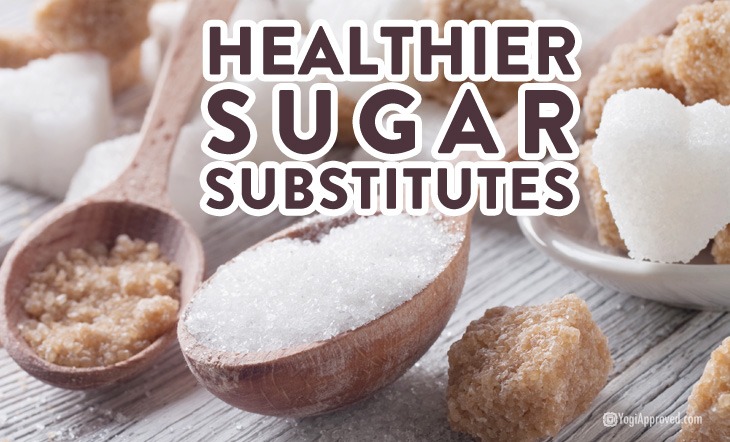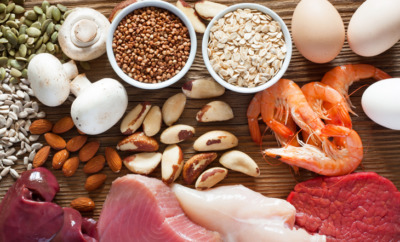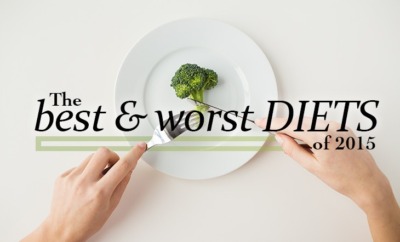In Search For The Perfect Sweetener: 3 Healthier Sugar Substitutes

sugar template
Sugar. How sweet the sound. You add it to your morning coffee or tea, incorporate it in your baking recipes, find it sneaking into some of our favorite condiments, and of course, see it in most of our favorite sweet treats. While some say it is as addictive as drugs, our bodies just can’t help but crave the stuff. Discovered in 510 BC by Emperor Darius of Persia, who invaded India and found this monosaccharide, he called it, “the reed which gives honey without bees.”
Unfortunately, this luscious carbohydrate that brings us so much joy and satisfaction is toxic to our bodies. Refined sugar is 50% fructose and 50% glucose. Fructose dramatically spikes our blood sugar, and unlike glucose, fructose is not produced naturally in our bodies. Fructose is considered to be a poison to us humans because of the way it processes in our bodies, which is through the liver.
When we consume fructose in excess, the liver has no choice but to turn this substance into liver fat, which is the beginning of all the downhill metabolic problems. Metabolic problems can lead to heart damage, and not just heart disease. Metabolic problems can also negatively affect the actual pumping of your heart and lead to heart failure. Some researchers also suggest it may link to cancer and negatively impact cancer survival.
Refined sugar specifically promotes belly fat, which we see as proof in today’s adolescence, where the obesity rates have tripled in the last 30 years. Excess fructose intake actually causes visceral fat cells to mature, which is where the big, apple shaped belly happens, a known cause of heart disease. You can also develop leptin resistance, which is the hormone that tells you you are full when you are eating. Not to mention it destroys our teeth by feeding the bad bacteria in our mouths, which can lead to tooth decay.
We are all told to watch our salt intake, but did you know sugar is just as much – if not more – of a silent killer? Sugar is empty calories containing no nutritional value while making up 10 to 20% of the average person’s caloric intake.
Sugar Facts:
• Refined sugars are linked to insomnia, dizziness, allergies, manic depression, cardiovascular disease, hypertension, hypoglycemia, colon and pancreatic cancer, hair loss, ADD/ADHD, skin irritation, tooth decay, metabolic syndrome, Type 2 diabetes, obesity, and is the leading cause in degenerative diseases.
• Sugar releases an opiate-like compound that activates our brain’s reward system, which is what leads to sugar addiction.
• When we consume refined sugar, it depletes our bodies of B vitamins, which leads to numerous health risks.
• In 1900, the average person consumed five pounds of sugar per year, compared to today’s average person consuming 150 pounds of sugar per year.
• Sugar consumption is growing faster than the human population, and the production of sugar is growing even faster, making it cheap and more attainable.
• The American Heart Association suggests that we consume less than 10 teaspoons of sugar per day. The average American consumes 22 teaspoons per day. To put it in perspective, one can of coke equals 10 teaspoons of sugar.
• If you were to take away the sugar in the average American’s diet, you would be reducing their caloric intake by 500 calories each day.
• The average American consumes 60 gallons of soft drinks per year.
• When manufacturers remove fat from a product to make it “low-fat” or “fat-free,” they replace it with SUGAR.
• Not all sweetener substitutes are created equal. Agave comes in with 50-54 grams of sugar per quarter cup, and honey comes in at nine grams per tablespoon.
• Even some infant formulas carry as much fructose as a can of soda.
Now, don’t let your sweet tooth get too discouraged when we bring up this information. It’s better to be informed and know that there are options!
Here are three alternatives to handle your sugar cravings, leaving the refined sugar in the cabinet while still getting your sweet fix.
1. Coconut Sugar
Coconut-based products are becoming the new fad, from coconut oil to coconut milk, and now we have coconut sugar, but for good reason! Coconut contains loads of nutritious vitamins and minerals, and it is said that some of the healthiest populations in the world regard the coconut as one of their main sources of food. Coconut palm sugar is made from the sap of the coconut tree, boiled and then dehydrated to get the sugar crystals. After this process, it is still able to retain some nutrients from the coconut palm such as iron, zinc, calcium, potassium, amino acids, polyphenols, antioxidants and fiber.
Although coconut sugar has the same amount of calories as regular table sugar (about 15 calories per teaspoon), it is significantly lower in fructose and glucose, coming in at three to nine percent of each. This makes it a low glycemic food, rating it at 35 on the Glycemic Index.
Not to be confused with palm sugar that is made from the sugar palm, coconut palm sugar has a similar taste to brown sugar and makes a great sugar substitute for your baking needs. You can add this as a 1:1 conversion for your cakes, cookies, cupcakes, and even to your coffee on your “cheat day” during the week. Before you run off to the store and purchase this bag of goodness, be sure to read the label of what you are buying. Many companies don’t sell pure coconut sugar. They often mix it with regular sugar and other ingredients. Always shop organic, fair trade and raw, and use sparingly for special treat days, holiday or special occasion baking.
2. Stevia
Stevia is a green leafy plant that is native to South America and has been used for centuries for medicinal purposes. Stevia is made up of two compounds: stevioside and rebaudioside A. Stevia has become a well-known sugar substitute with added health benefits. Some of these health benefits include lowering blood pressure, blood sugar and bad cholesterol, as well as being anti-inflammatory. It inhibits the growth of plaque, by not feeding the bad bacteria in our mouths and is reported to contain an abundance of phytonutrients, minerals, and also helps curb hunger, nicotine and alcohol cravings.
Stevia leaf is 300 times sweeter-tasting than normal table sugar, so the flavor may take a bit to get used to, and a little goes a long way. For instance, with some Stevia brands, one teaspoon could equal the same sweetness as one cup of refined sugar, and five liquid drops equal one tablespoon of refined sugar. Again, read the labels of what you are buying. Don’t confuse Stevia with Truvia, another sweetener that adds different compounds and fillers. You can use Stevia to sweeten smoothies, coffee, tea and other beverages, and substitute it in your baking recipes. It is very versatile; however, it may take some experimenting to reach your desired sweetness and flavor. Use Stevia in moderation.
3. Maple Syrup
Mmmm our favorite pancake condiment! This rich, delicious, traditional sweetener not only tastes amazing but is also jam-packed with nutrients. Maple syrup is native to North America, and was being used long before sugar cane made its way to the mainland. It is rich in minerals such as zinc, thiamine and calcium. It also contains polyphenols and many other nutrients that are believed to be prevent cancer, antibacterial and anti-diabetic, and contain numerous antioxidants and anti-inflammatory properties.
Maple syrup is great to add to your morning coffee – yes, coffee! Mix either coconut milk or almond milk (or both) with maple syrup, and top with coffee. You will have a delicious treat and a festive new way to enjoy this beloved beverage. You can also use maple syrup as a sweetener substitute in baking, to curb your sweet cravings (just take a shot straight from the bottle), add to cocktails, and any other creative way you can come up with. Make sure you go to the organic, grade B, and, if possible, small batch brand to get the most nutritional benefits. Enjoy maple syrup in moderation.
There you have it! Our top three favorite sweetener substitutes that don’t involve chemicals and have added health benefits. Even though these are alternatives and healthier options to refined sugar, we do encourage you to enjoy these in moderation. Overdoing it with anything is never good.


This Month's Letter
From the Editor
Monthly motivation and food for
thought from our founder.





























